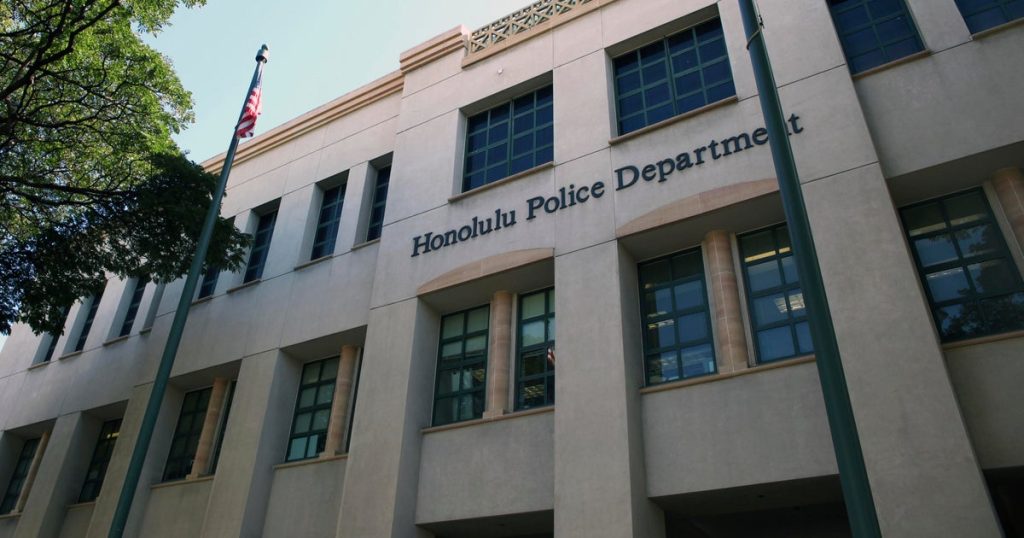The Honolulu Police Department (HPD) is under scrutiny following a lawsuit filed by the American Civil Liberties Union (ACLU) of Hawaii, alleging the department’s practices regarding impaired driving arrests disproportionately affect sober drivers. The lawsuit claims that officers often make arrests without probable cause and even incentivize DUI arrests, leading to unwarranted detentions. This prompted HPD to announce a comprehensive review of all impaired driving arrests dating back to 2021, aiming to address the concerns raised.
| Article Subheadings |
|---|
| 1) Overview of the Lawsuit and Arrest Trends |
| 2) Impact on Individuals and Communities |
| 3) Background of Enforcement Practices |
| 4) Official Response from Honolulu Police Department |
| 5) Future Implications and Reforms |
Overview of the Lawsuit and Arrest Trends
The ACLU of Hawaii filed a lawsuit against the HPD, highlighting a disturbing pattern in DUI arrests over recent years. The organization asserts that the police have been arresting individuals who exhibit no signs of impairment and who have passed field sobriety tests with flying colors. Reports indicate that many of these drivers have breathalyzer results showing a blood-alcohol content (BAC) of 0.00, underscoring the questionable basis of these arrests. This class-action lawsuit is focused on three plaintiffs but represents a larger number of drivers affected by these practices.
Impact on Individuals and Communities
The implications of such arrests extend beyond legal ramifications; they have a profound impact on the lives of those wrongfully detained. Legal representatives indicate that the consequences of these arrests can damage reputations and alter life trajectories. In a poignant statement, attorney Jeremy O’Steen noted that each arrest has caused lasting damage, noting,
“Each of our clients blew a 0.000. None of them were intoxicated.”
The ACLU emphasizes the emotional toll and trauma experienced by innocent individuals who navigate these arrests.
Background of Enforcement Practices
Underlying these arrests is an alleged directive from HPD leadership to focus intensely on DUI arrests. According to the ACLU, officers receive encouragement to prioritize DUI arrests over mindful enforcement practices, allegedly leading to manipulative tactics. The organization argues that such a singular focus on numbers undermines the department’s integrity, insinuating that the practices aim to meet federal funding quotas rather than ensure public safety.
Official Response from Honolulu Police Department
In light of the allegations, HPD officials have stated that they take the claims seriously and have initiated a thorough review of all impaired driving arrests dating back to 2021. This review aims to ascertain whether the department’s practices align with constitutional standards. Officials have also confirmed they will investigate the specific cases of the three named plaintiffs in the lawsuit. According to a police statement, “We are dedicated to upholding public trust and will take appropriate action should any misconduct be found.”
Future Implications and Reforms
As the case develops, potential reforms within HPD could emerge in response to public pressure and scrutiny. Both the lawsuit and the subsequent review may fuel discussions around police accountability, officer conduct, and overall enforcement strategies in Hawaii. Legal observers speculate that the outcome of this lawsuit could set important precedents regarding law enforcement standards and civil rights protections for drivers.
| No. | Key Points |
|---|---|
| 1 | The ACLU filed a lawsuit against the Honolulu Police Department regarding wrongful DUI arrests. |
| 2 | Many arrested individuals had a breathalyzer result of 0.00, indicating they were not impaired. |
| 3 | The lawsuit aims to address systemic issues within HPD’s DUI arrest protocols. |
| 4 | HPD is conducting a comprehensive review of its impaired driving arrests from 2021 onwards. |
| 5 | The outcomes of this case may impact future policing practices and civil rights enforcement. |
Summary
The allegations raised by the ACLU against the Honolulu Police Department spotlight critical issues surrounding law enforcement practices in Hawaii. With the ongoing review and potential for judicial intervention, the situation highlights an urgent need for reform in the department’s approach to impaired driving arrests. This lawsuit not only addresses the grievances of the involved plaintiffs but may have far-reaching implications for how law enforcement approaches DUI enforcement going forward.
Frequently Asked Questions
Question: What led to the filing of the ACLU lawsuit?
The ACLU filed the lawsuit due to concerns about the HPD’s arrest practices, particularly regarding drivers who show no signs of impairment yet are still arrested for DUI.
Question: How does HPD plan to address these allegations?
HPD has initiated a comprehensive review of all impaired driving arrests since 2021 and stated its commitment to uphold public trust through investigative actions regarding the plaintiffs’ cases.
Question: What could be the potential outcomes of this lawsuit?
The lawsuit may lead to reforms within HPD’s enforcement practices and set precedents for police accountability and civil rights protections, impacting future DUI arrests.


